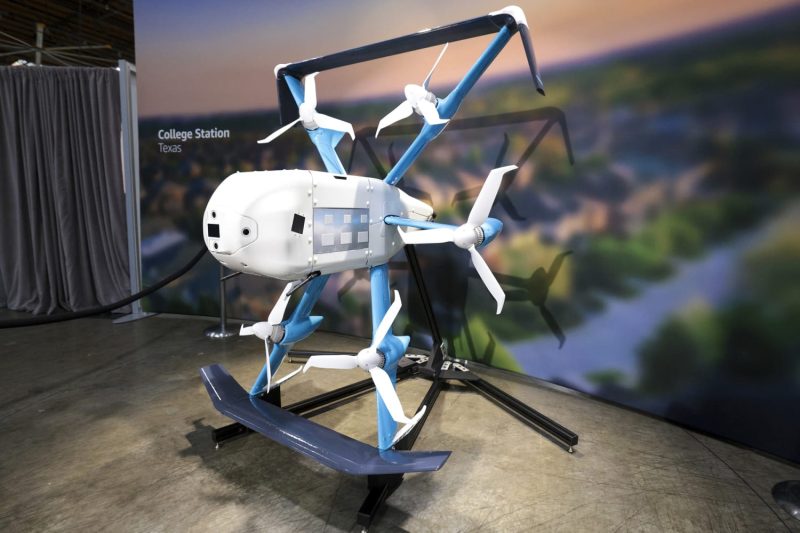Amazon, a global e-commerce giant, has recently obtained approval from the Federal Aviation Administration (FAA) for its latest delivery drone, advancing its plan to leverage drone technology to revolutionize the logistics industry. The patented drone’s performance is currently being tested in Arizona to ascertain its efficiency, customer service, and most importantly, safety standards.
The new drone, named Prime Air, is at the forefront of Amazon’s enterprising initiative to utilize automated drones for package delivery. It aims at enabling Amazon to deliver ordered items to clients within 30 minutes of purchase. The innovative technology will come to life due to the FAA’s Part 135 air carrier certificate accorded to Amazon. This sanction enables Amazon to commence its drone delivery operations on a larger scale, fueling numerous real-world testing and data collection operations.
One of the benchmark tests includes launching these drones in areas with minimal aviation activity – such as rural Arizona. Amazon anticipates these test flights will provide vital information to help perfect the technology, increasing parcel deliveries’ efficiency and sustainability.
Prime Air is designed with top-notch technology that includes a sophisticated ‘sense and avoid’ system, ensuring the drone does no harm to other aircraft or structures during its flight. This fully automated drone’s capacity is restricted to carrying packages under five pounds, targeting quick deliveries within a 10-mile radius from the fulfillment center. The drone also perfectly aligns with Amazon’s objective of achieving net-zero carbon emissions across its operations by 2040.
Following the FAA approval, Amazon has now joined the ranks of UPS and Google’s Wing, who were earlier beneficiaries of the same certification, carving out a new channel in the logistics and delivery sector. This marked transition reflects the shift from the conventional logistics industry to a more technologically advanced and innovative phase touching the threshold of the future.
In addition to speedier deliveries, Amazon’s Prime Air also exhibits immense potential in remote and hard-to-reach areas where road transport is impossible or inefficient. Thus, this technology could serve as a lifeline for distant communities, assuring them access to essential products they may need urgently.
Despite the potential advantages, Amazon’s Prime Air drone tests also triggered concern around privacy issues. Critics argue that these autonomous drones, equipped with powerful cameras for navigation and delivery, can potentially infringe upon privacy. Amazon, however, has repeatedly committed to respecting local law enforcement and regulatory standards along with the customers’ privacy.
Further reflecting a positive step towards evolution in the delivery sector, the FAA’s recent decision to relax its regulations on drone usage augurs well for companies like Amazon. Highlighting a new era of technological advancement in logistics, this step encourages a closer inspection of ways to develop, regulate, and leverage drone technology’s potentialities.
In summary, Amazon’s Prime Air reveals a pivotal step towards integrating advanced technology into logistics and delivery systems. Amazon’s substantial investment, coupled with FAA’s support, signals a promising future for drone technology’s adoption in the mainstream e-commerce industry, aiming to provide efficient, quick, and sustainable service to customers worldwide.
